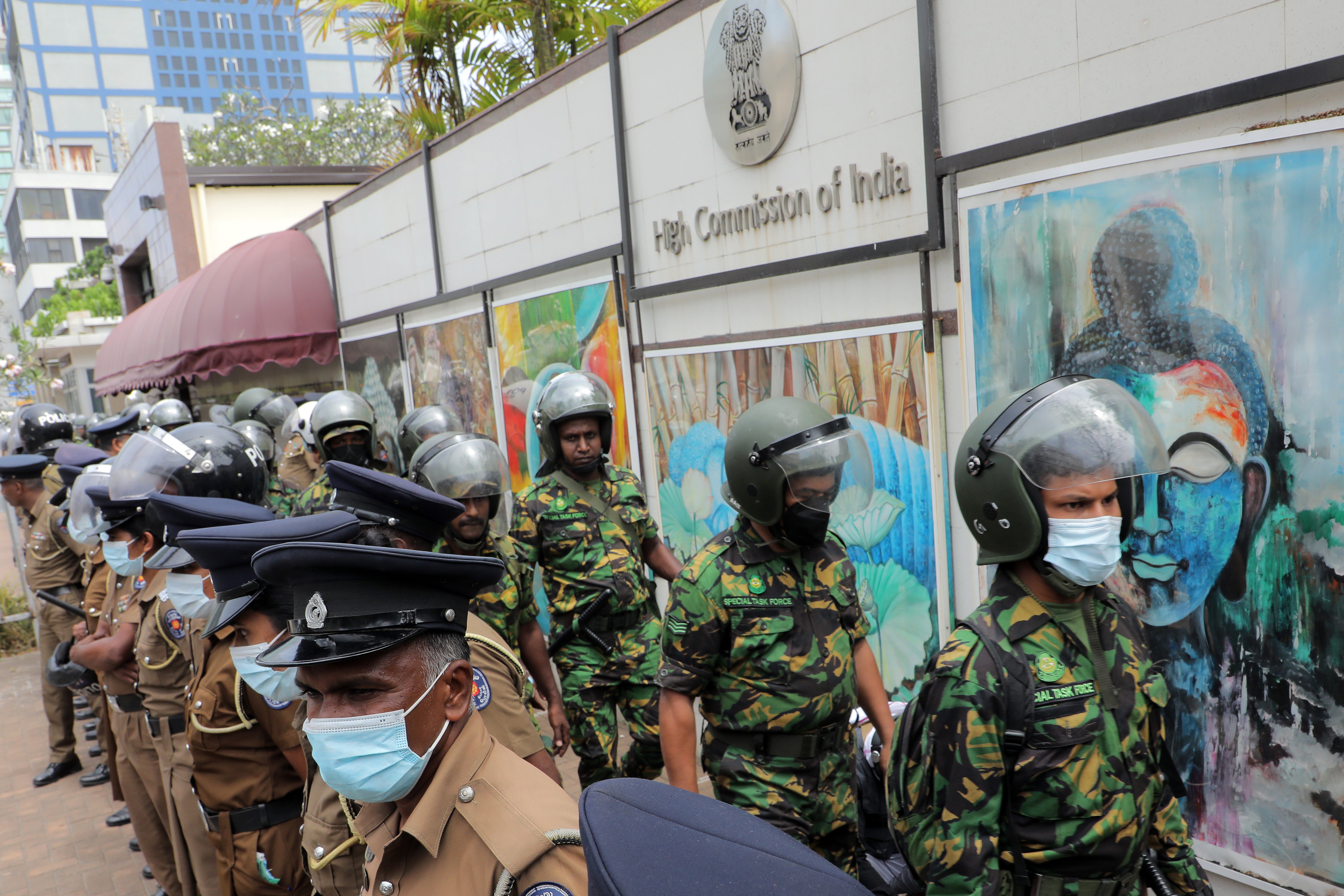Sri Lanka’s acting president declares emergency to curb protests ahead of voting
Parliament is expected to vote to elect a president to lead the cash-strapped nation

Sri Lanka’s acting president has again declared a state of emergency in the nation ahead of the presidential election in parliament as the leadership struggled to contain public anger.
In a government notice released late on Sunday, Ranil Wickremesinghe announced the state of emergency for the “protection of public order and the maintenance of supplies and services” to the people.
“It is expedient, so to do, in the interests of public security, the protection of public order and the maintenance of supplies and services essential to the life of the community,” the notification stated.
This is the second time in a week that Mr Wickremesinghe was forced to announce emergency measures in the crisis-ridden island nation.
The specific legal provisions of the gazetted order which will come into effect on Monday (18 July) are yet to be announced by the government.
The parliament of the country will vote to elect a new president on Wednesday after president Gotabaya Rajapaksa was pressured to resign and flee the country amid a popular uprising against his government.

Candidates in the 225-seat parliament will submit nominations for the post on Tuesday with the acting president and current prime minister Mr Wickremesinghe vying for the post along with the main opposition, Sajith Premadasa.
The candidate would require at least 50 per cent or 113 votes in the parliament if all lawmakers cast their ballots.
Last week, Mr Wickremesinghe declared an emergency after Mr Rajapaksa fled to Singapore but it had not been officially notified or gazetted, unlike this time.
Several such prohibritory orders have been imposed in the country where regulations have been used to deploy the military to arrest and detain people and search private property in a bid to dampen public protests.
However, on Monday morning the country’s commercial capital Colombo remained calm with traffic and pedestrians out on the streets.
The Indian Ocean nation has witnessed months of protests after the country fell into a deepening economic crisis as people faced fire shortages of food, gas and other amid amenities after the country ran out of money to import basic necessities, prices for fuel and gas soared.



Join our commenting forum
Join thought-provoking conversations, follow other Independent readers and see their replies
Comments